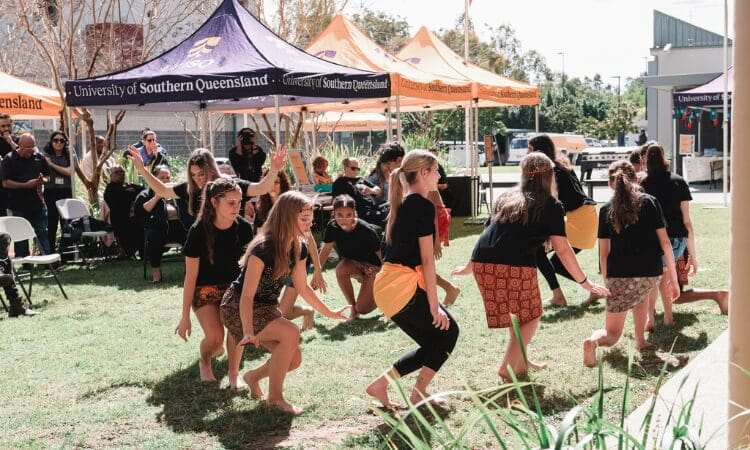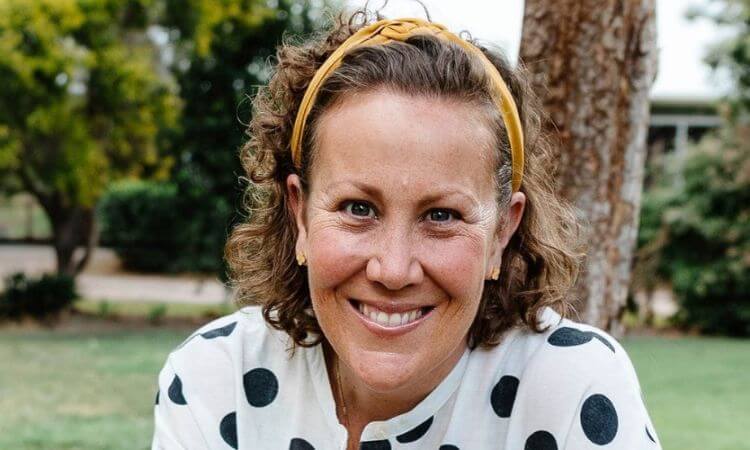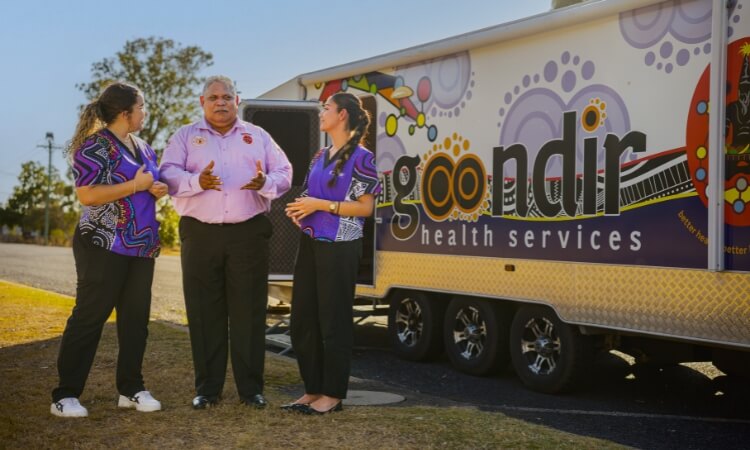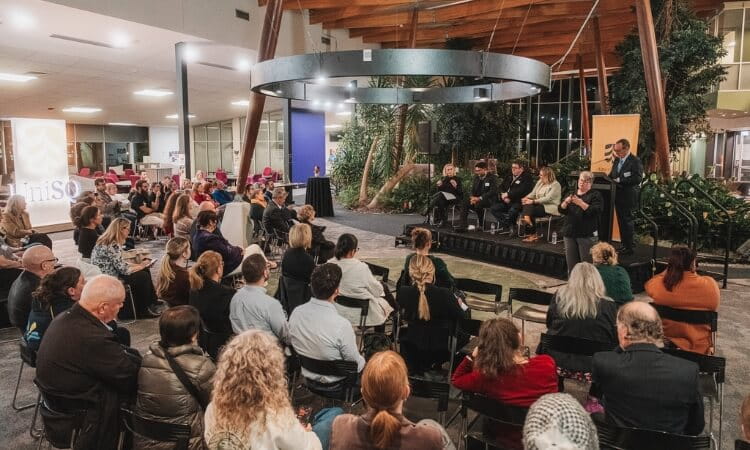Students in the spotlight: Celebrating 50 years of NAIDOC Week

2025 marks a powerful milestone: 50 years of honouring and elevating Indigenous voices, culture and resilience as part of NAIDOC Week.
As we commemorate this 50-year journey, we’re celebrating the voices that have shaped the movement, the progress made and the continuing strength and resilience of First Nations peoples.
Last week, across our University of Southern Queensland (UniSQ) campuses, we enjoyed powerful stories, vibrant performances, and hands-on cultural experiences with students, staff, and community members.
We caught up with three UniSQ First Nations students to discuss the significance of the 2025 NAIDOC Week theme, The Next Generation: Strength, Vision & Legacy.
Brayden Harvey l Psychology Student
Q: How does this year’s NAIDOC Week theme challenge or enhance your understanding of Aboriginal and Torres Strait Islander histories, cultures, and contributions? How can this awareness be integrated into your field of study or future profession?
A: This year’s theme challenges and enhances my understanding of Aboriginal cultures. It helps me become more connected in the culture that I’m still learning about. I’m so grateful to have grown up throughout high school and my early adult years surrounded by Indigenous communities and have always been an advocate for my own people.
As someone who has felt unsure of their cultural identity, finding out more about my own family tree and where I trace back from has been incredible. This year’s theme touches on what it means to be Aboriginal in Australia, throughout history, and what it means for the future.
In my field of study, I think the integration of this theme can look like others learning about their culture. Using their connection to culture as a way of healing emotions and trauma will help others feel a sense of community and belonging, as well as a sense of individuality.
Jacquelyn Henningsen l Allied Health Student
Q: What does this year’s NAIDOC Week theme mean to you? How does it connect with your learning or experiences as a UniSQ student?
A: I feel like this year’s NAIDOC theme really resonates with my generation – the strength of my ancestors paving the way, the vision we see for our young people, and the legacy we’ll carry on. I’ve always wanted to work in my community and help in some way – and I think that being involved in health will make a huge difference. I want to be a familiar face for our people going into healthcare settings. UniSQ really wants Indigenous people to succeed, and they really care about opening doors for us that other people would say are difficult. The programs and hubs they have available make me feel extremely comfortable, encourage me to come to uni every day, and just keep pushing through and continuing to study.
Stephanie Towers l Biomedical Sciences Student
Q: In what ways does this year’s NAIDOC Week theme inspire you in your learning journey at UniSQ? How can it influence your contribution to your field of study?
A: As the first First Nations student pursuing a Bachelor of Biomedical Science (Medicine Pathway) at UniSQ, this year’s NAIDOC theme deeply inspires my journey. It reminds me that I stand upon the strength of our ancestors, guided by the vision of our communities, and holding the legacy passed down through countless generations.
In the medical field, there is a critical need for more First Nations voices to help close the health gap and deliver care that is culturally safe, community-focused and grounded in respect. For me, this theme is a reminder that my learning journey is not just about personal achievement; it’s about walking a path that honours those who came before me and creating opportunities for those who will follow.
Growing up, I thought the only people who could be doctors were those who came from wealth. That shouldn’t have been the case; First Nations children should grow up knowing they have the right and opportunity to follow any career path they are passionate about. Representation in medicine is especially important; without it, voices go unheard and health outcomes suffer. I am proud to be part of a program that is building a stronger, more inclusive healthcare system for our regional and rural communities.
UniSQ is a place where identity and culture are not only acknowledged but truly celebrated. My goal is to contribute to a health system where our people feel seen, heard and respected – not just as patients, but as partners in their care. Studying Biomedical Sciences gives me the skills and knowledge to work at the intersection of Western medicine and Indigenous ways of knowing, recognising that both hold immense value in healing and wellbeing. I believe that by bridging these two worlds, we can create better health outcomes, restore trust, and ensure future generations grow up with access to quality, culturally safe healthcare.
For me, this theme isn’t just words on a poster. It’s a call to action. It’s about carrying forward the strength of our people, shaping a vision that’s bold and inclusive, and building a legacy that the next generation can stand proudly on. Our actions today become the inheritance of the generations to come.
Learn more about NAIDOC at UniSQ in 2025.


